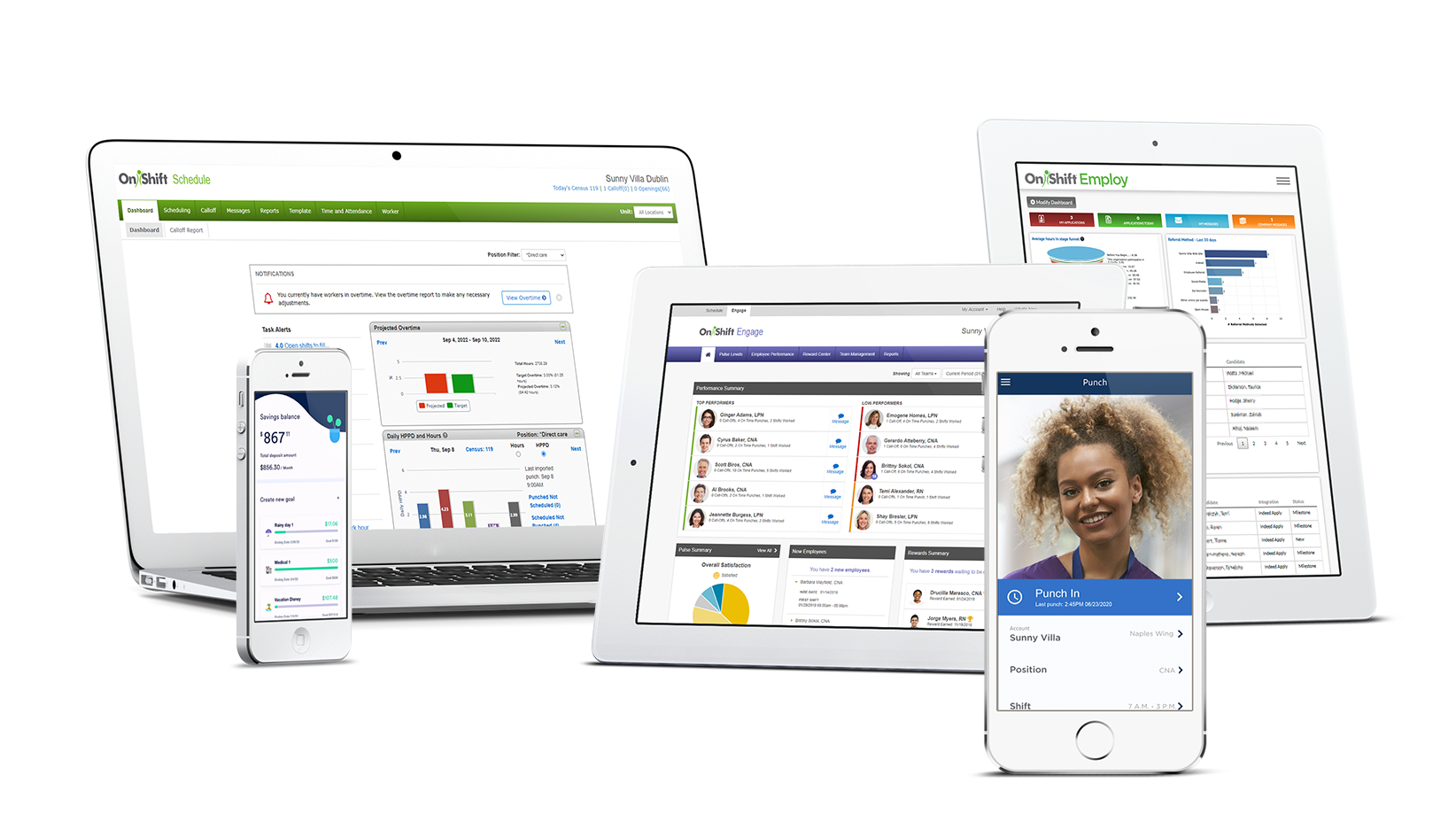February 6, 2023 | Rachel Gee
February 6, 2023 | Rachel Gee
Engagement is a key piece of the employee retention puzzle. When organizations experience high turnover, they often look for ways to improve staff satisfaction and engagement by initiating programs for frontline workers. But if the focus of these efforts is exclusively on employees, the organization may still be at risk. In fact, managers account for at least 70% of the variance in employee engagement.
First and foremost, employee engagement starts at the leadership level. Administrators, executive directors, department leaders and supervisors set the culture for the community and their teams. Gallup coined the term “cascade effect” to describe the effect a manager’s level of engagement has on their employees. In the U.S., 51% of managers are disengaged and 14% are actively disengaged. This lack of interest directly contributes to their direct reports’ engagement levels. Just imagine the lack of engagement throughout a community where the executive director or administrator has mentally checked out or is actively disengaged.
Defining the Qualities of an Effective Manager
Considering the current state of the senior care industry – with its high turnover rates and labor shortages – the need for engaged managers is imperative to your organization.
So, where do you begin?
It all starts with understanding each manager’s personal investment in the organization and their ability to engage and motivate employees. Here are four qualities all successful managers in senior care possess.
1. Fair and Equitable
Favoritism can be an engagement killer. That’s why effective managers always stay objective, no matter the situation or the employees involved.
When managers have an equitable mindset, they’re able to look at an employee for their contributions and outcomes first, leaving out any subjective notions they may have. Having a real-time view of employee behaviors and performance can help influence this equitable mindset, as it sets an objective, numbers-driven view of each member of the team.
Managers may find it easy to rely on select "go-to" employees when a shift needs to be filled. However, this can leave an impression of favoritism to other employees. When communicating open shifts, it is important to give all eligible and available employees equal opportunity to request the shift.
Further, a fair and equal mindset is effective when issues and conflicts arise. Strong managers are consistent with how they handle situations for all employees, maintaining an open mind and allowing the employee to provide their ideas for resolving them.
2. Strong Communicators
Communication in the workplace needs to extend beyond shop talk to build meaningful manager-employee relationships. Great managers in senior care take the time to get to know each staff member personally, creating a deeper connection and increasing engagement.
Effective managers hold frequent one-on-one check-ins with each of their direct reports. During this time, managers and employees get to know each other better to cultivate stronger relationships. Plus, these meetings offer employees a set time when they can discuss any concerns or issues they’re facing.
Additionally, a one-on-one meeting offers a terrific opportunity for managers to provide valuable feedback, discuss goals, and evaluate performance to make sure everyone stays on track.
3. Leaders by Example
Engaged employees are motivated employees, so it’s no wonder that effective managers are also natural motivators. The best managers don’t just tell employees what to do. Instead, they take the time to also explain why and how it contributes. They also work to instill a sense of purpose in both day-to-day tasks and long-term projects.
Most people who choose to go into the senior care profession do so with the intention of helping others. For managers, this desire should extend to helping their employees, as well as residents and patients.
Additionally, managers need to think of themselves as coaches. Leadership “takes one for the team” every day...literally. Managers are held responsible when direct reports don’t perform, so great managers ensure their team has the tools they need to get the job done.
Strong managers consistently monitor each employee to make sure they’re on the path to success and they aren’t afraid to address potential problem areas. For example, when an employee has several call-offs in a row, their manager should have a private discussion with him or her to find out why, then work with the employee to develop a plan to get them back on track.
To help, many organizations are equipping their managers with technology, like OnShift, to monitor employee performance, satisfaction and capture feedback in real-time with automated pulse and customizable surveys.
4. Quick to Recognize and Reward Quality Work
Everyone likes to be recognized for a hard day’s work, and today’s workforce craves consistent feedback and recognition for their contributions. The most effective managers regularly celebrate and show appreciation for their employees and don’t make recognition an afterthought.
Successful managers understand that a rewards and recognition program needs to be consistent. They go beyond the one-off pizza party and apply a systemic approach that makes it easy to consistently recognize and reward top performers.
OnShift helps managers recognize and reward employee successes by automatically awarding points for key behaviors, performance, and contributions and incentivizing employees with point leaderboards.
Putting the Pieces Together
The bottom line? When managers in senior care are engaged, they create a culture of engagement among their teams. It’s a win-win for senior care organizations in today’s challenging environments.
Ready to learn more about the qualities senior-care managers should have to drive employee engagement? Check out our full whitepaper, 7 Must-Have Manager Qualities to Drive Employee Engagement.
Subscribe to the OnShift Blog
Recent Posts
Categories
About Rachel Gee
Rachel Gee is the Content Marketing Manager at OnShift.
See for yourself why thousands of providers rely on OnShift’s innovative software for recruitment, hiring, workforce management, pay and engagement. Request your personalized demo today.
